Applying Pressure
In which Norm spins up splendid new restorations of Lizzie Borden's BORN IN FLAMES and Mike Hodges' GET CARTER. You're going to want to see these.
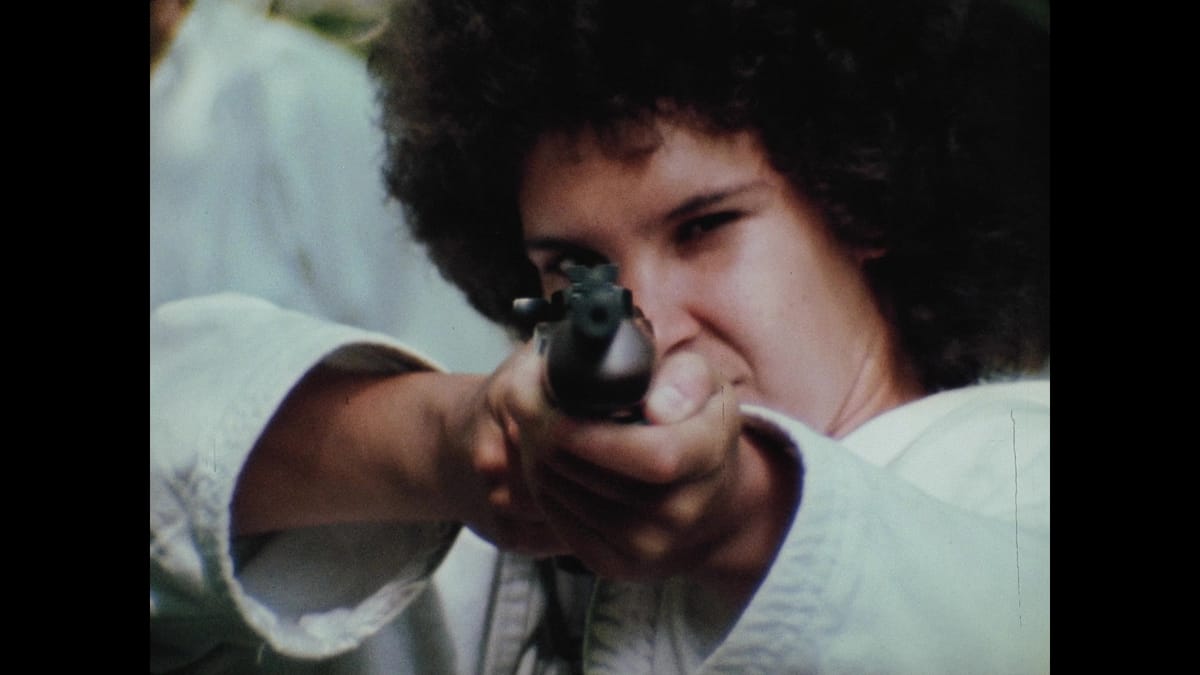
Four decades after its arrival, Lizzie Borden’s Born in Flames is still hard to watch. And not just because of the subject matter: It’s deliberately fragmented and cacophonic, a whirl of action and voices presented in a scramble of video clips and wild footage, set in an America that’s lost sight of itself.
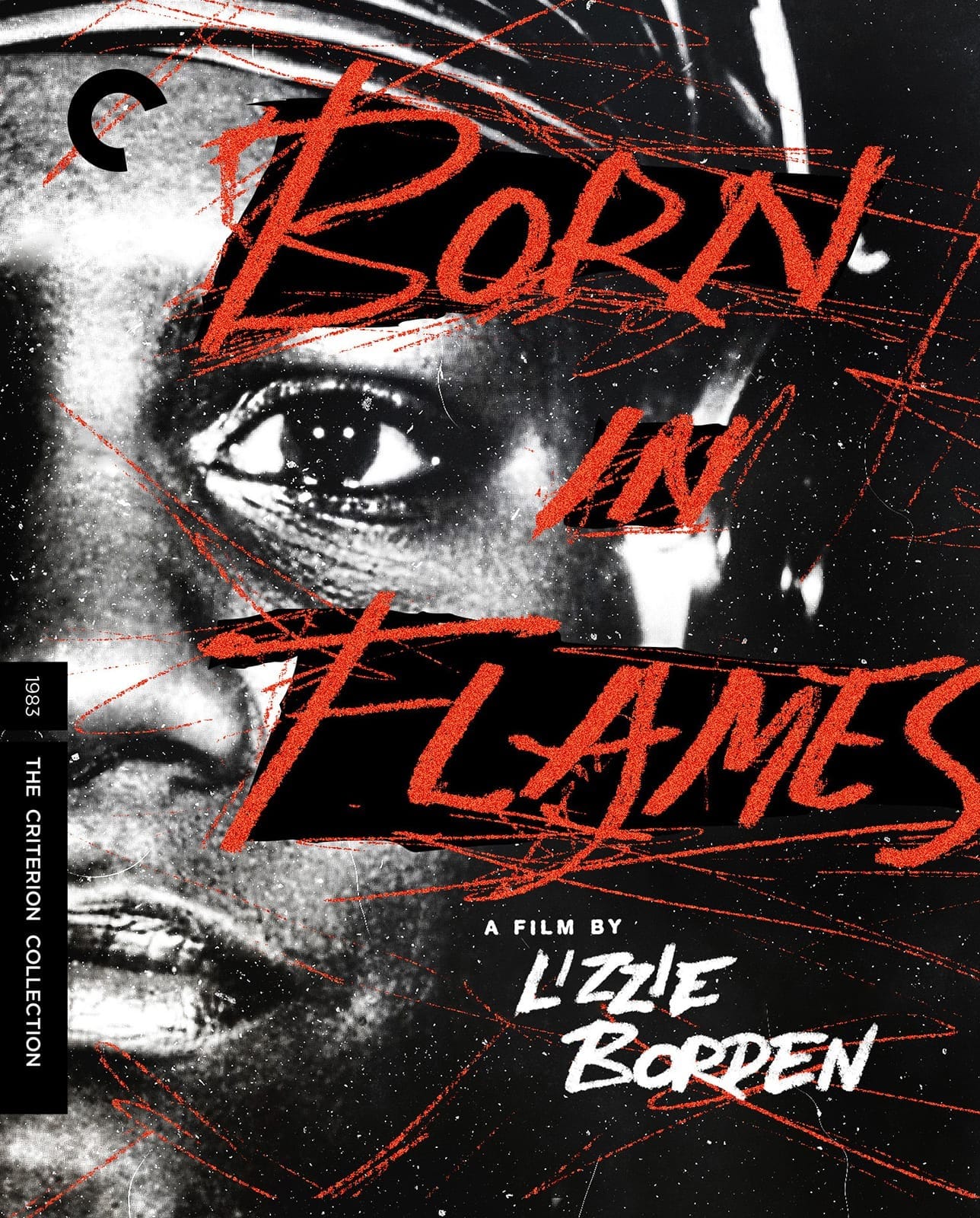
Political signs are waved around; men attack women, cops assault civilians, activists are arrested and found dead in their jail cells a day or two later, leaving their comrades arguing over who to blame and what to do next. It is, in fact, remarkably like the experience of shuffling through contemporary social media; even some of the music is the same.
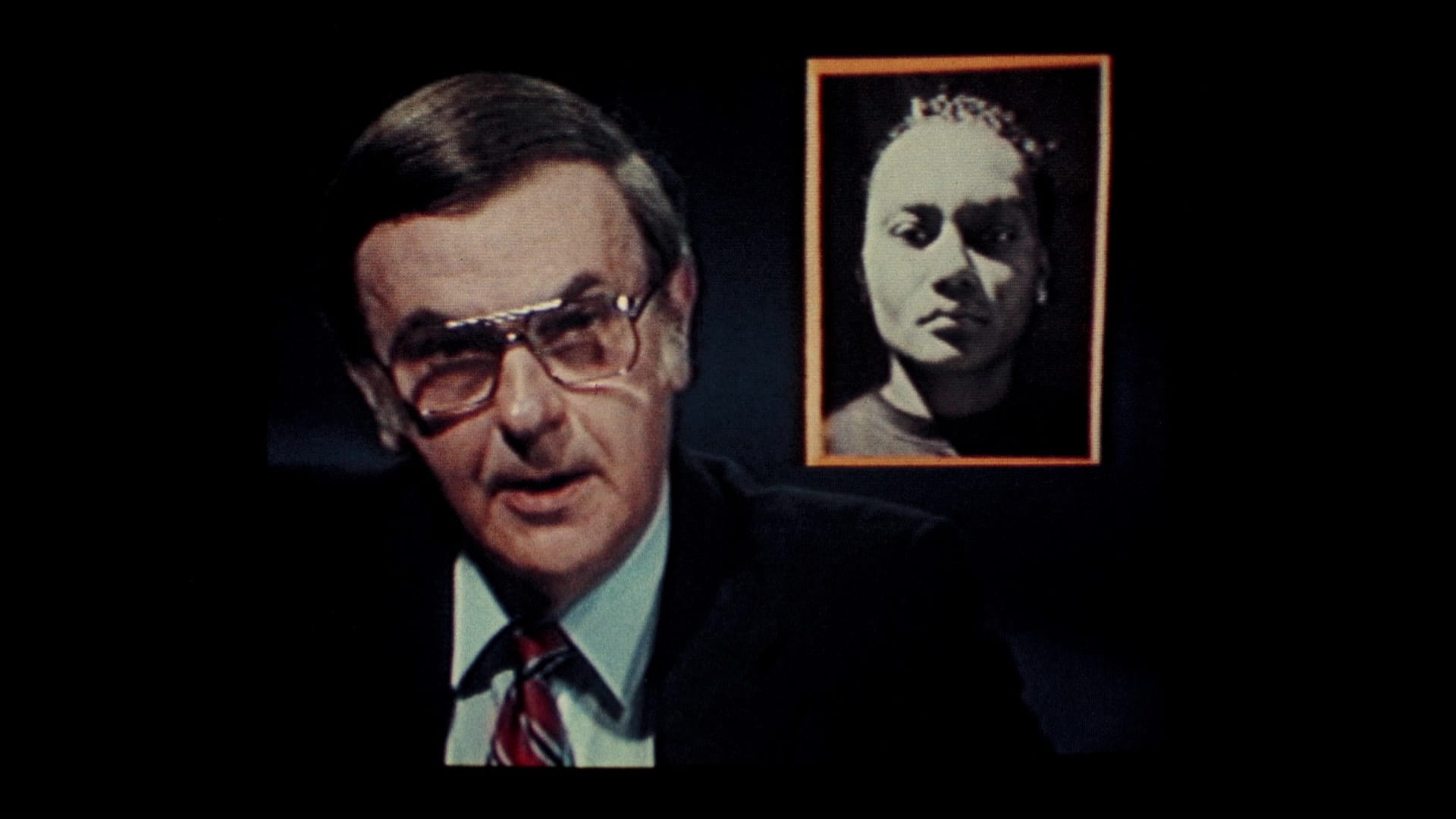
Born in Flames posits a fracturing America, ten years after what was supposed to be a social-democrat revolution. Context clues tell us the revolution’s utopian promise went unrealized, and the people in charge are the same people who’ve always been in charge, leaving everyone else scrambling to wake up the populace with pamphlets, pirate radio and some light armed resistance. Borden’s film focuses on the women striving for change – predominantly women of color – as the new/old order pushes back, hard.
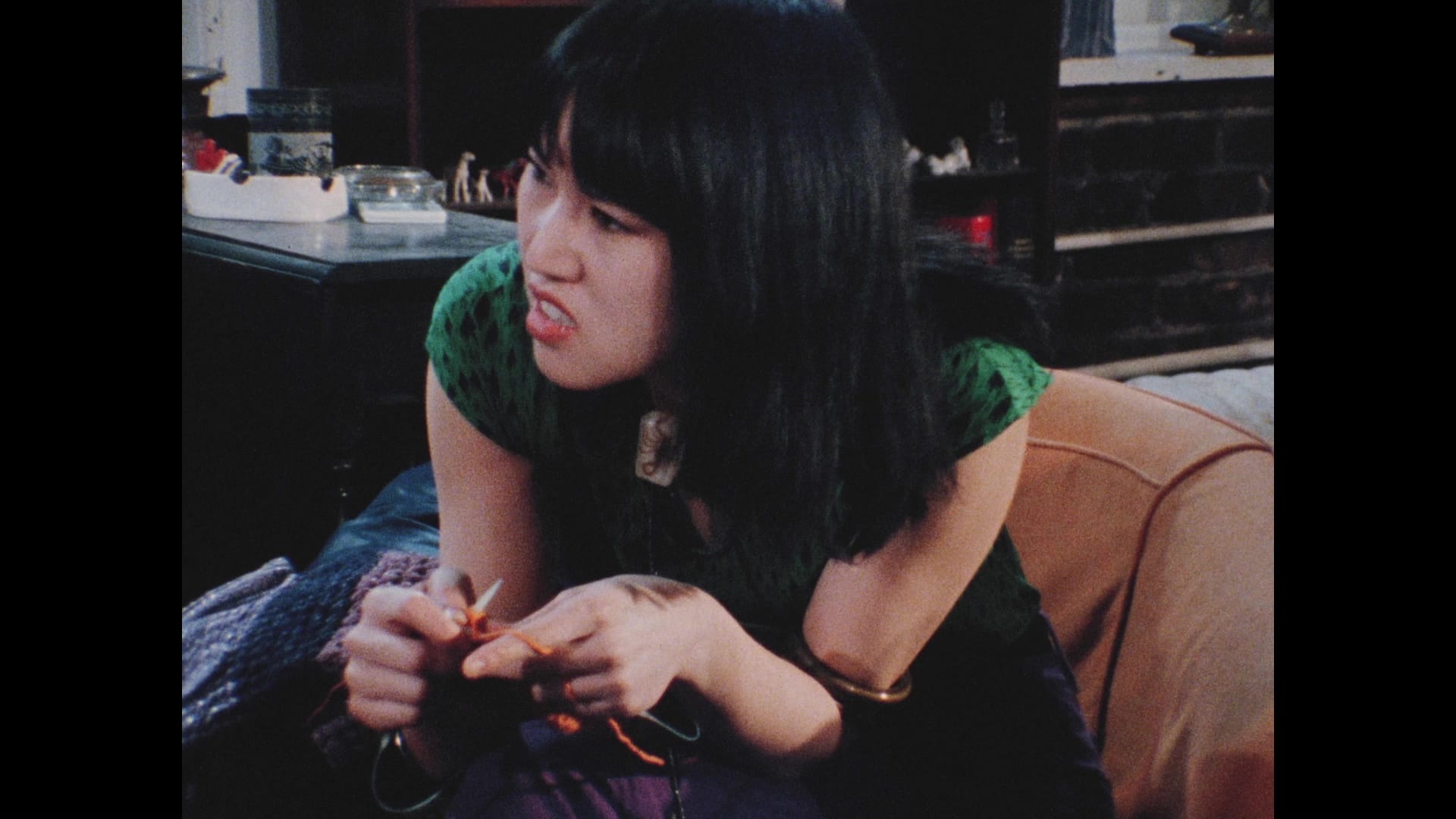
If Born in Flames is assaultive, that’s exactly what it needs to be. Released in 1983, as Ronald Reagan’s demagogued his way to re-election with a mixture of empty platitudes, aggressive deregulation and thinly veiled racism – remind you of anybody? – it’s an agit-prop masterpiece, all the more valuable now for its awareness of intersectional feminism decades before that concept went mainstream. The contrast between Borden’s heroes – always joined in the middle of an argument, shouting over each other – and her villains, suit-wearing feds who never need to raise their voices, tells us where the power lies in her narrative.
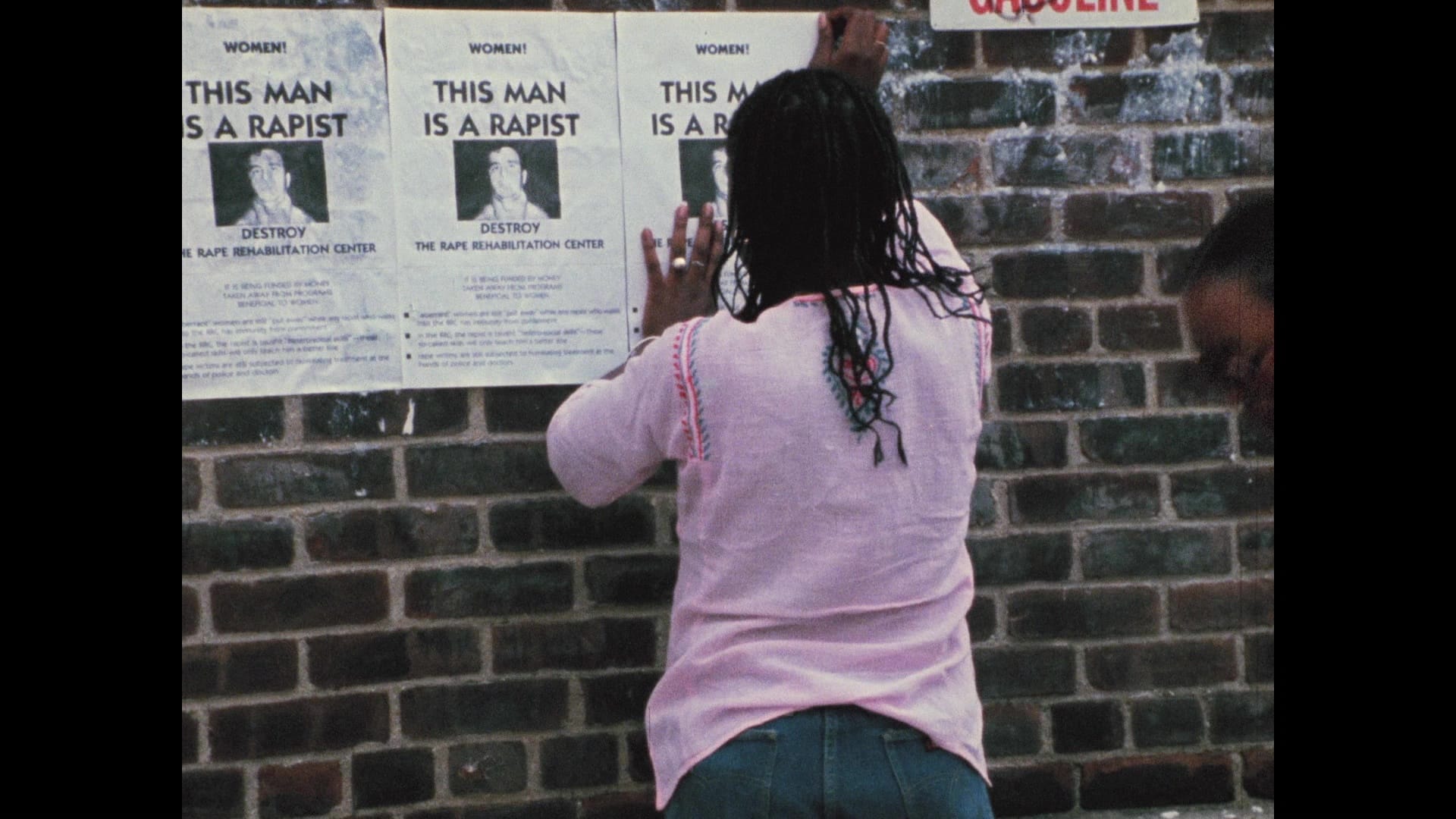
Borden and I recorded an episode of Someone Else’s Movie earlier this week, and one of the things we talked about was the curious labelling of Born in Flames as science-fiction over the decades, despite having no sci-fi elements whatsoever. (Is The Handmaid’s Tale science fiction, when Margaret Atwood said everything in the book had already happened at some point in human history?)
Borden sees it as a documentary, really, since so much of it was shot wild on the streets of New York City, filmed over several years whenever she could get the cash together; the dystopian aspect is just an extra-textual conceit to give her rebels something to rebel against. A few hours after we spoke, ABC took Jimmy Kimmel off the air for broadcasting a news clip that displeased the President of the United States, so … yeah. It’s not sci-fi, it’s prophecy. See it while it’s still legal, you know?
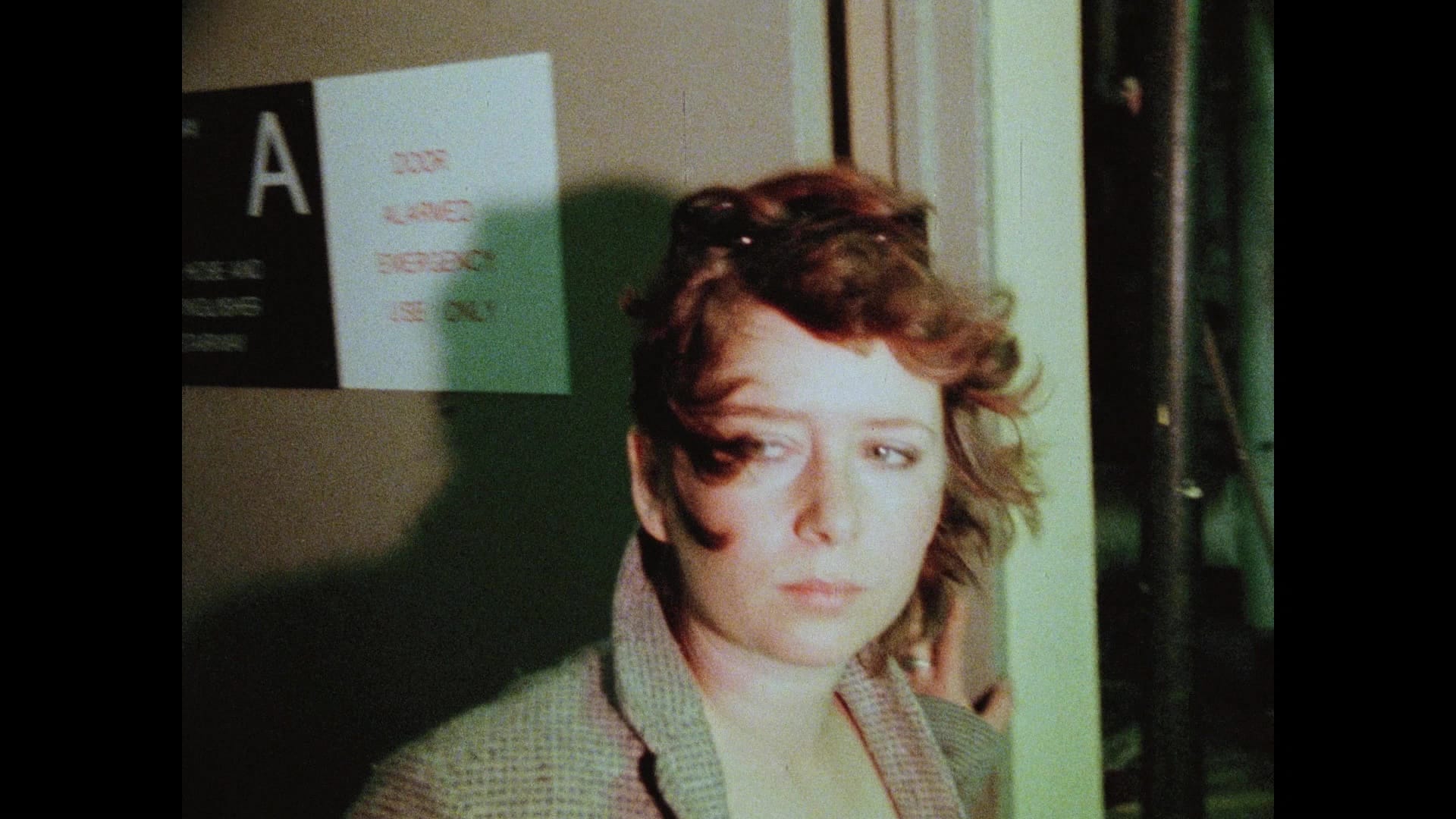
Criterion’s Blu-ray edition of Born in Flames presents a 2K digital restoration of the film from Anthology Film Archives, and looks sharper and more stable than I’ve ever seen it while still retaining the messy, grainy texture of the 16mm negative. The mono soundtrack has been similarly cleaned up without losing its ragged, overlapping audio; it’s a faithful presentation, rather than a polished one.
And Criterion’s supplemental package is extremely illuminating. A new audio commentary lets Borden discuss the making of the film with cast members Adele Bertei, Hillary Hurst, Sheila McLaughlin, Pat Murphy, Marty Pottenger and Jeanne Satterfield and cinematographers DeeDee Halleck and Chris Hegedus, looking back at the frantic shoot and marveling that it reached the audience it did. Borden also discusses the film in a new interview, drilling down on the stop-and-start nature of the production and the vanished New York it now documents.
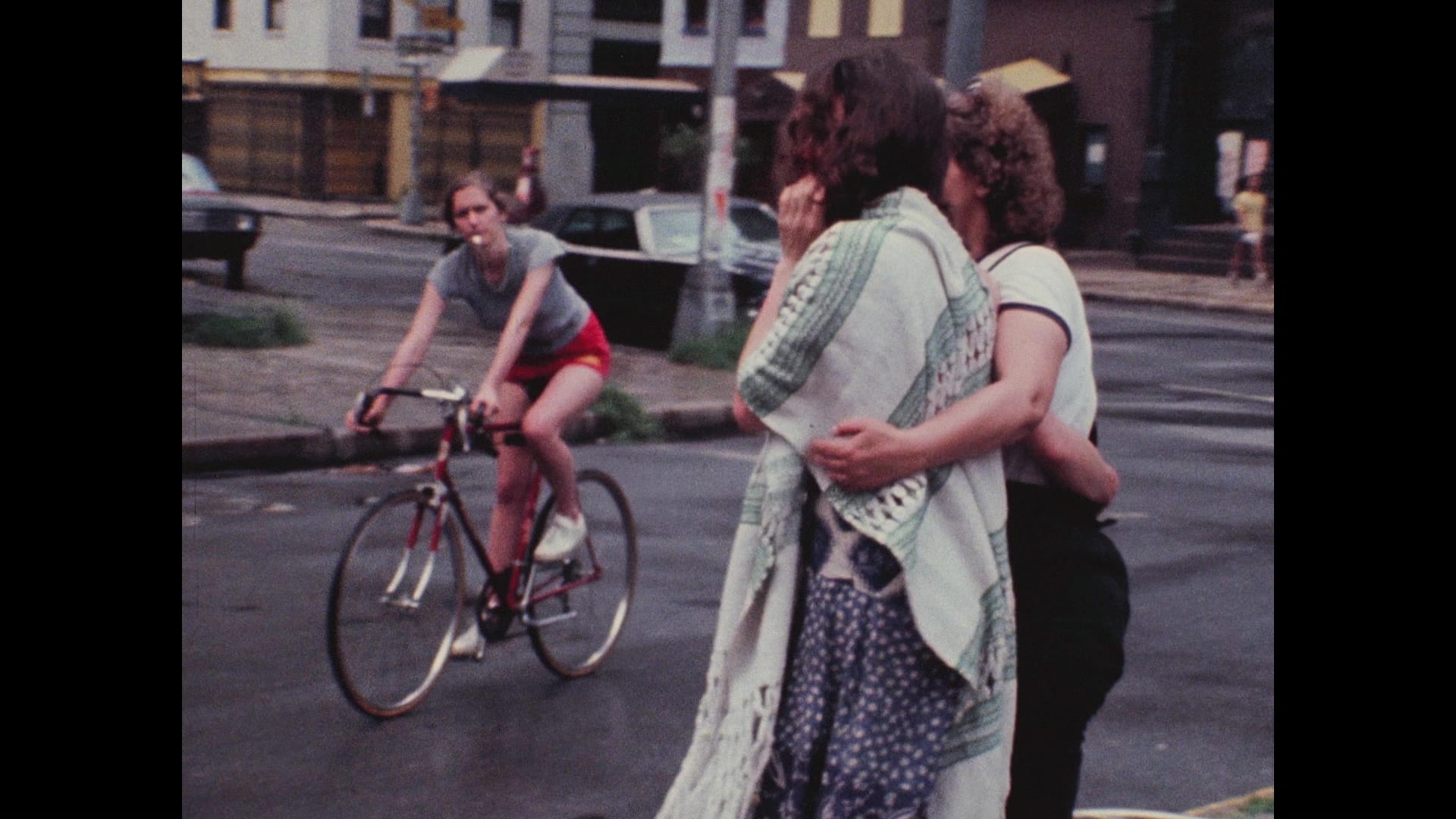
The disc also includes a new restoration of Borden’s first film, the 1976 documentary Regrouping, about a progressive feminist collective splintering along ideological lines.
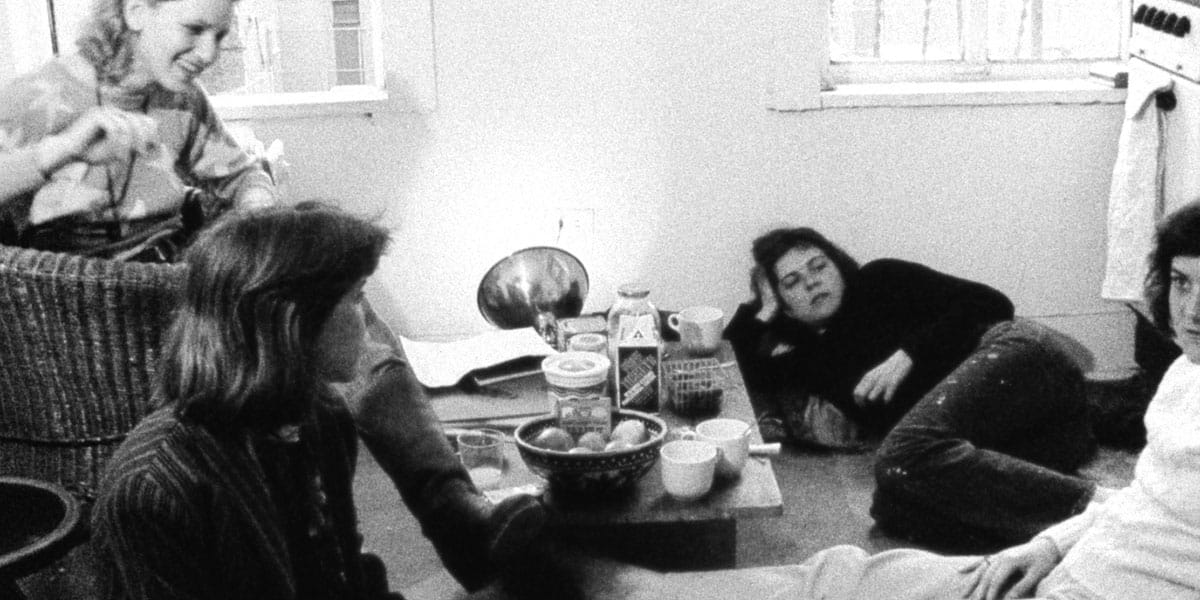
“Shelved for decades due to the objections of its subjects” per the Criterion Channel, it’s now clear that this is the film that led to Born in Flames; Borden’s cacophonic visual and aural aesthetic was there from the start, the clashing conversations and smash-cut editing emulating the intellectual chaos she captures in Regrouping. The two films in tandem are an invaluable snapshot of a cultural moment that’s not nearly as far behind us as we’d like it to be. Progress is slow and victory is uncertain, but it feels really good to land a punch.
So remember earlier this week when I talked about all the great work Warner Archive is doing for classic cinema? Well, we can add one more title to the list, since the very next day I received their new 4K edition of Mike Hodges’ Get Carter, and it is a beauty.
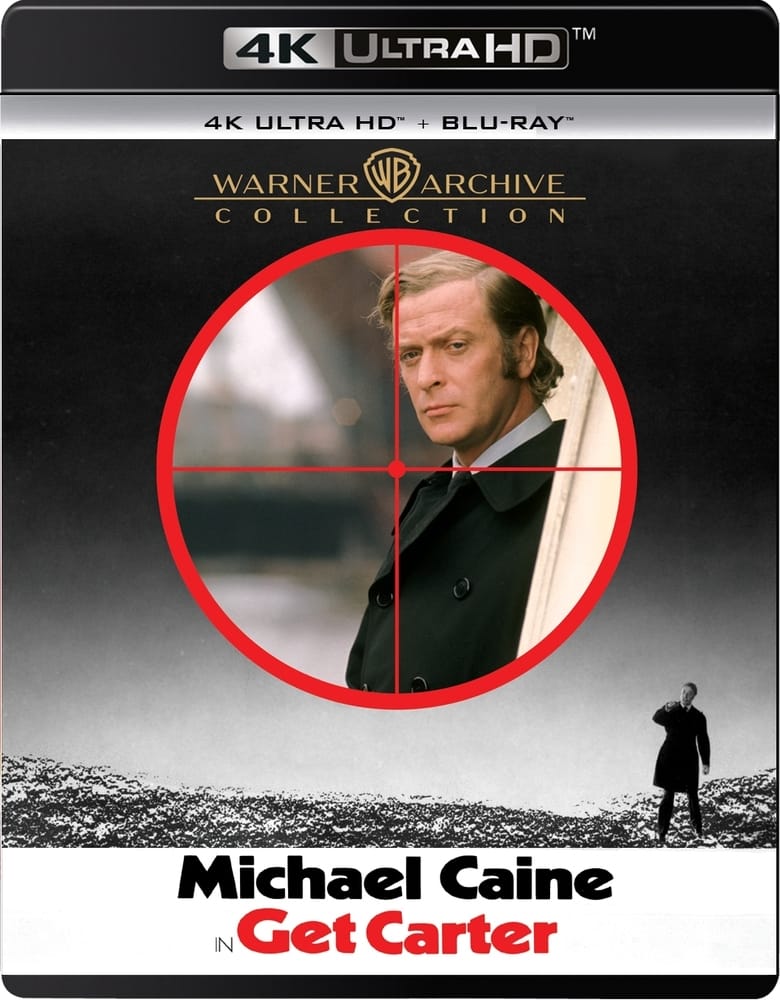
Arriving as a counterpoint to the Cool Brittania gangster pictures of the late 60s – and starring Michael Caine, the very incarnation of the movement after The Italian Job and the Harry Palmer trilogy, among others – Get Carter is utterly uninterested in stylish depictions of antiheroes. Adapting Ted Lewis’ novel Jack’s Return Home, Hodges spins a relentless revenge story, with Caine’s hard man traveling from London to his hometown of Newcastle, and going up the chain of local mobsters to find out the truth about his brother’s suspicious death.
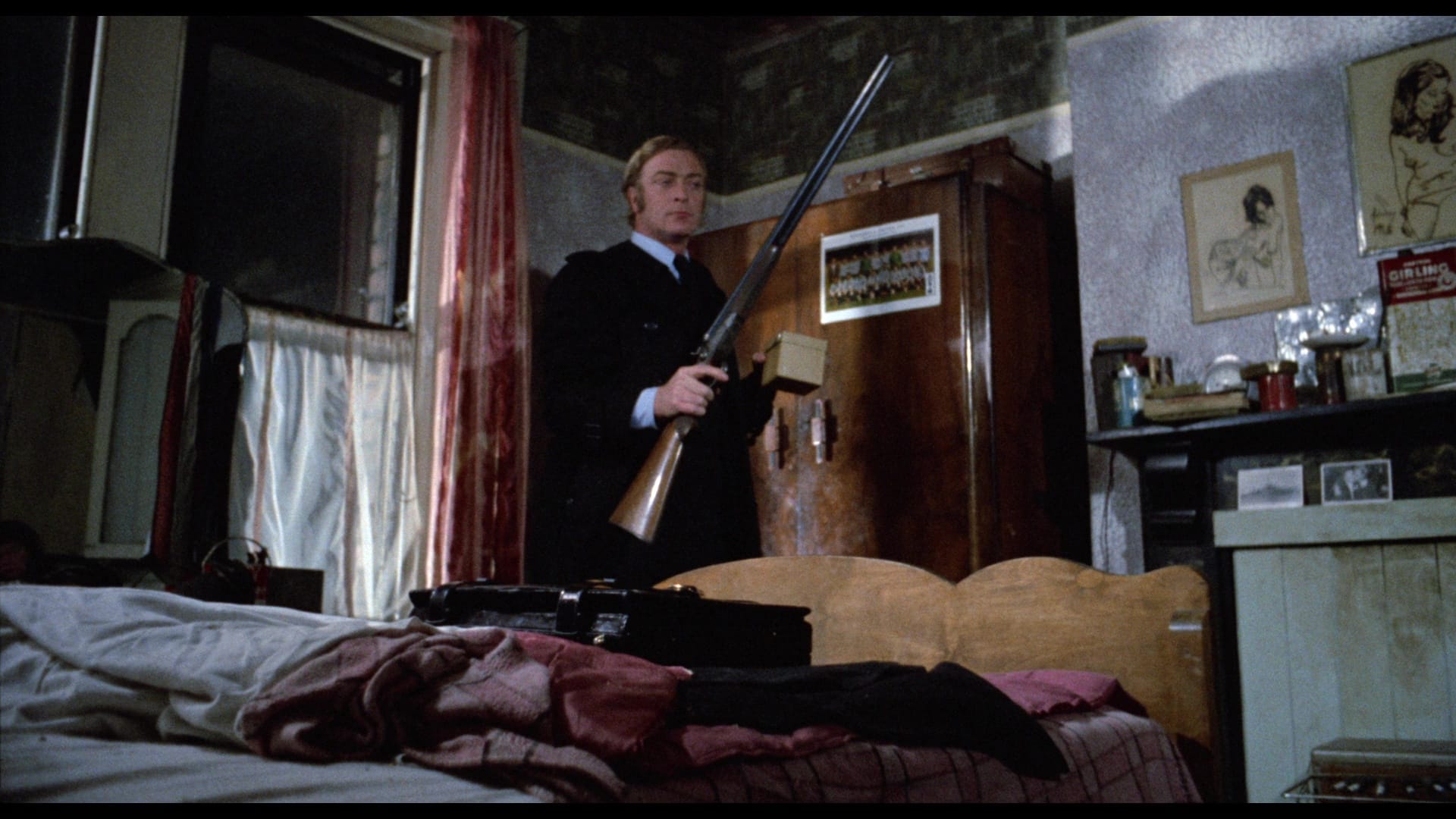
That’d be dark enough, but Hodges and Caine have an even darker agenda, gradually showing us that Jack Carter isn’t really seeking revenge as much as an excuse to unleash his worst self, shifting from intimidation and threats to torture and murder. He’s decent enough to Frank’s daughter Doreen (Petra Markham), but she’s literally the only person he sees as a human being; everyone else in his path exists to be used and discarded, each body serving as another step on the ladder.
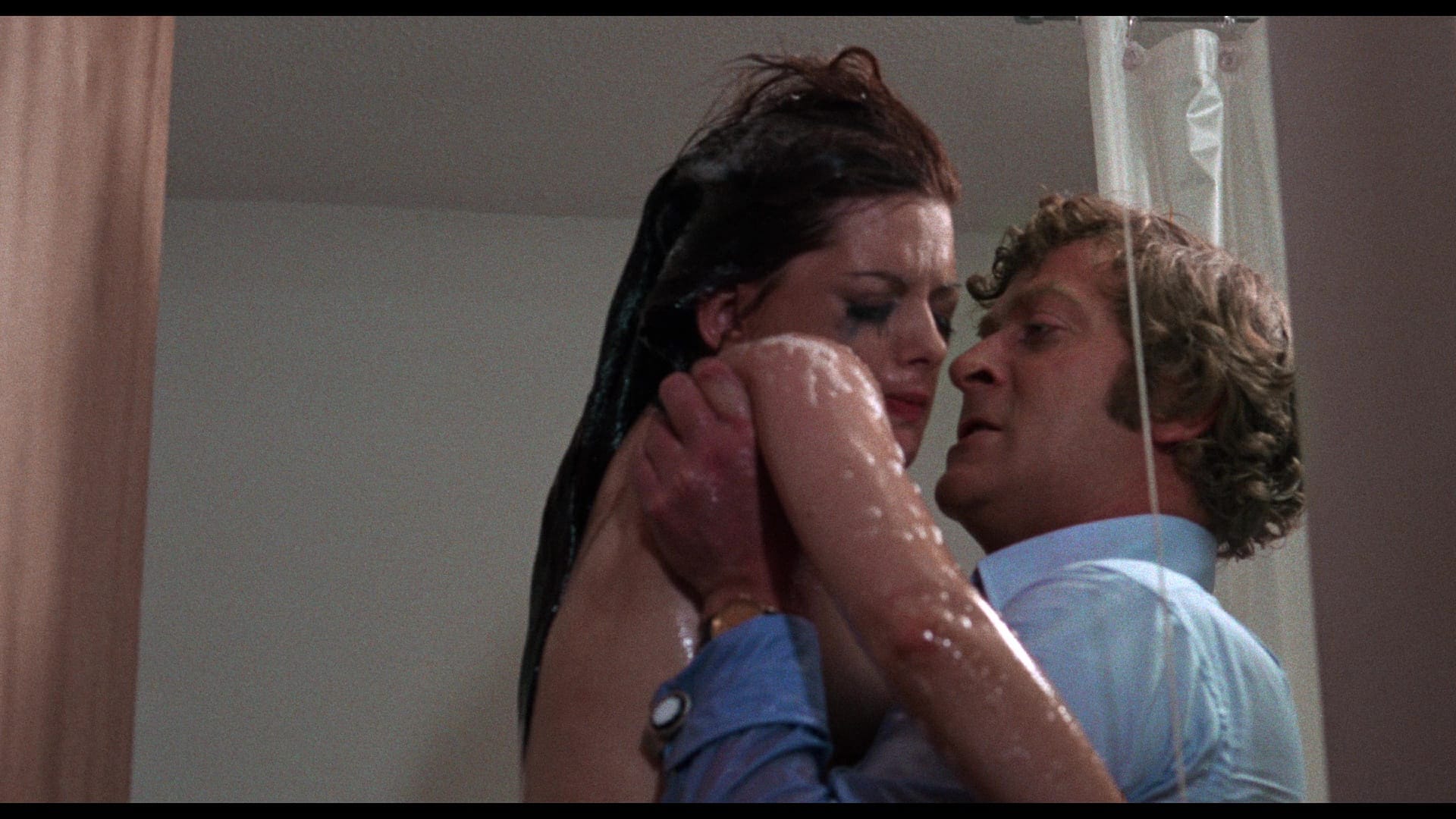
And if the plot is linear, Caine’s performance is even more so; towering over most of his co-stars and baring his teeth while pretending to smile, he’s a terrifying presence, charging towards each new victim like a Terminator. Caine’s always been willing to risk alienating his audience – Alfie Elkins, million-dollar grin notwithstanding, was not a nice guy – but Jack Carter is a monster, all bile and contempt and brutality. Hodges knew it, and went with it; the result is some of Caine’s finest work, and now we get to see it more clearly than ever.
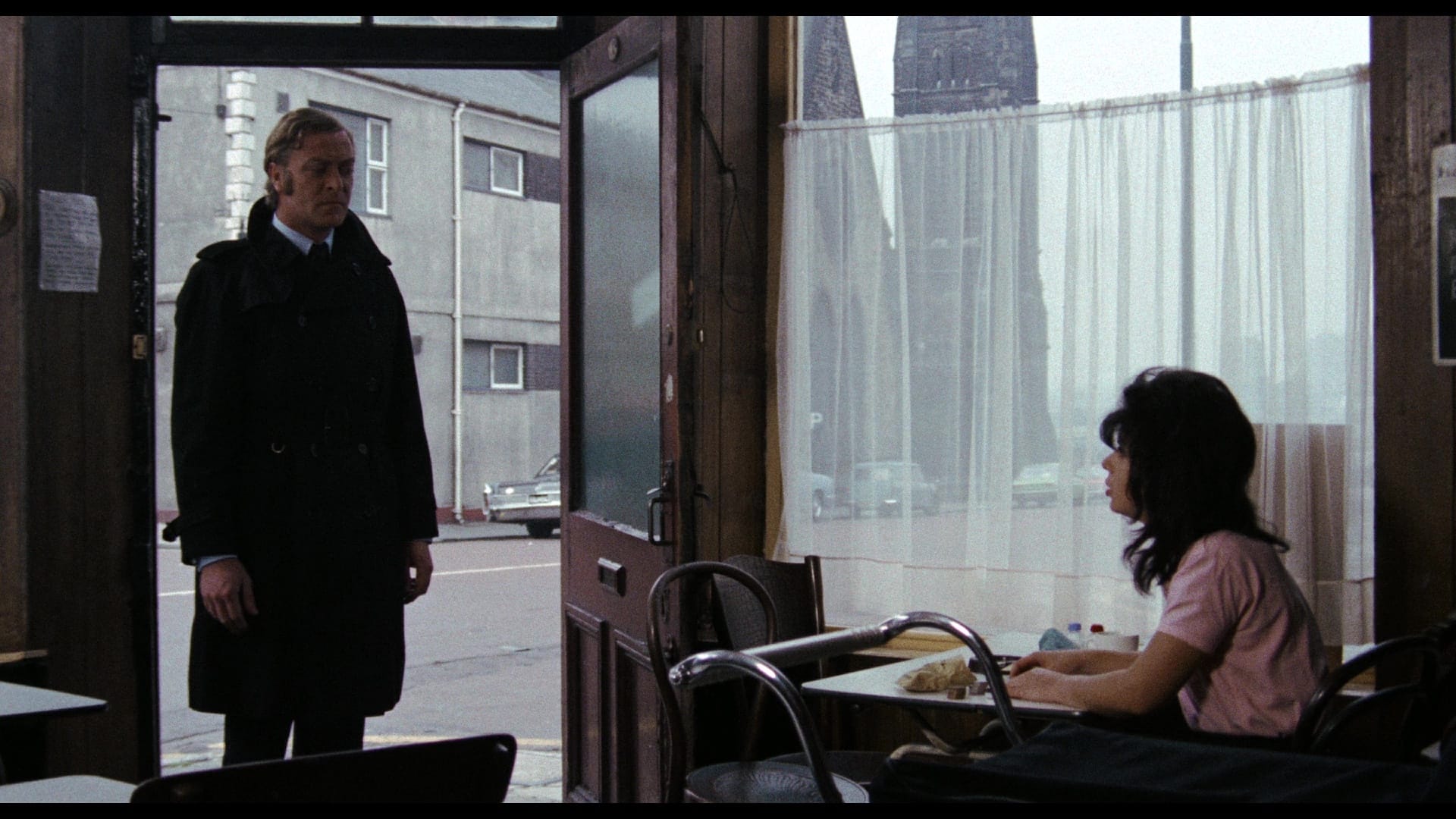
Warner Archive’s 4K and Blu-ray editions of Get Carter mark the North American release of the BFI special edition released in the UK three years ago, built on a new 4K master produced at London’s Silver Salt Restoration. And they did a fine job bringing the image back to its grimy, original textures. Get Carter was never supposed to look pristine or glossy; cinematographer Wolfgang Suschitzky came from a documentary background, and much of the movie has a kitchen-sink realism that places us right next to Caine in a series of underlit locations that aren’t quite big enough for him – cramped train coaches, modest bedrooms, crowded pubs – and only offering a sense of space when he’s outdoors.
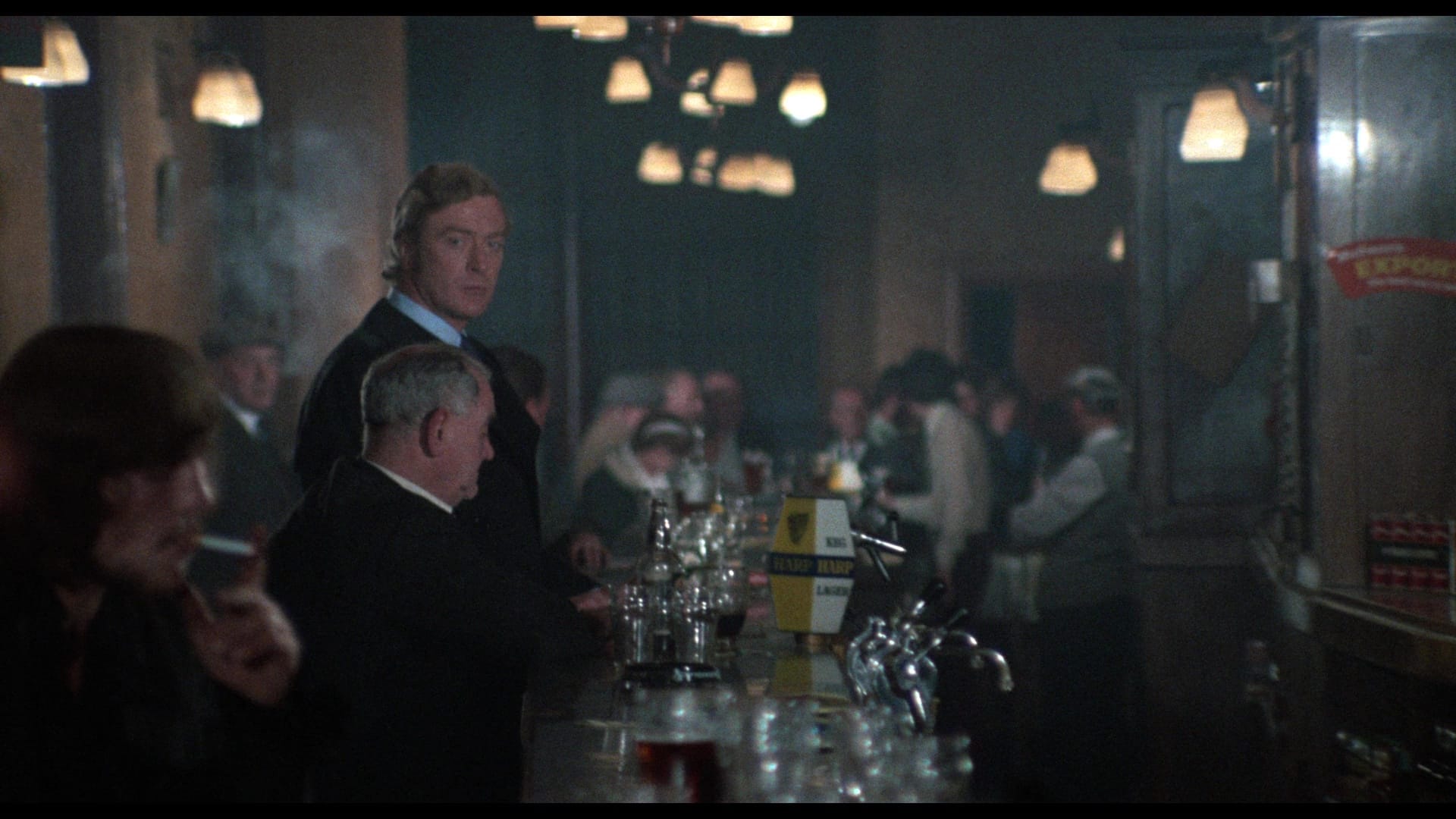
The newly remastered sound mix is similarly faithful, by which I mean Roy Budd’s sparingly applied score comes through loud and clear while everything else is deliberately muddy, forcing us to strain to hear the dialogue in certain scenes. MGM demanded the cast redub their roles with less pronounced accents for the North American release; that track was included on Warner’s previous DVDs and Blu-rays, making the Archive release the first domestic disc to restore the film’s original audio.
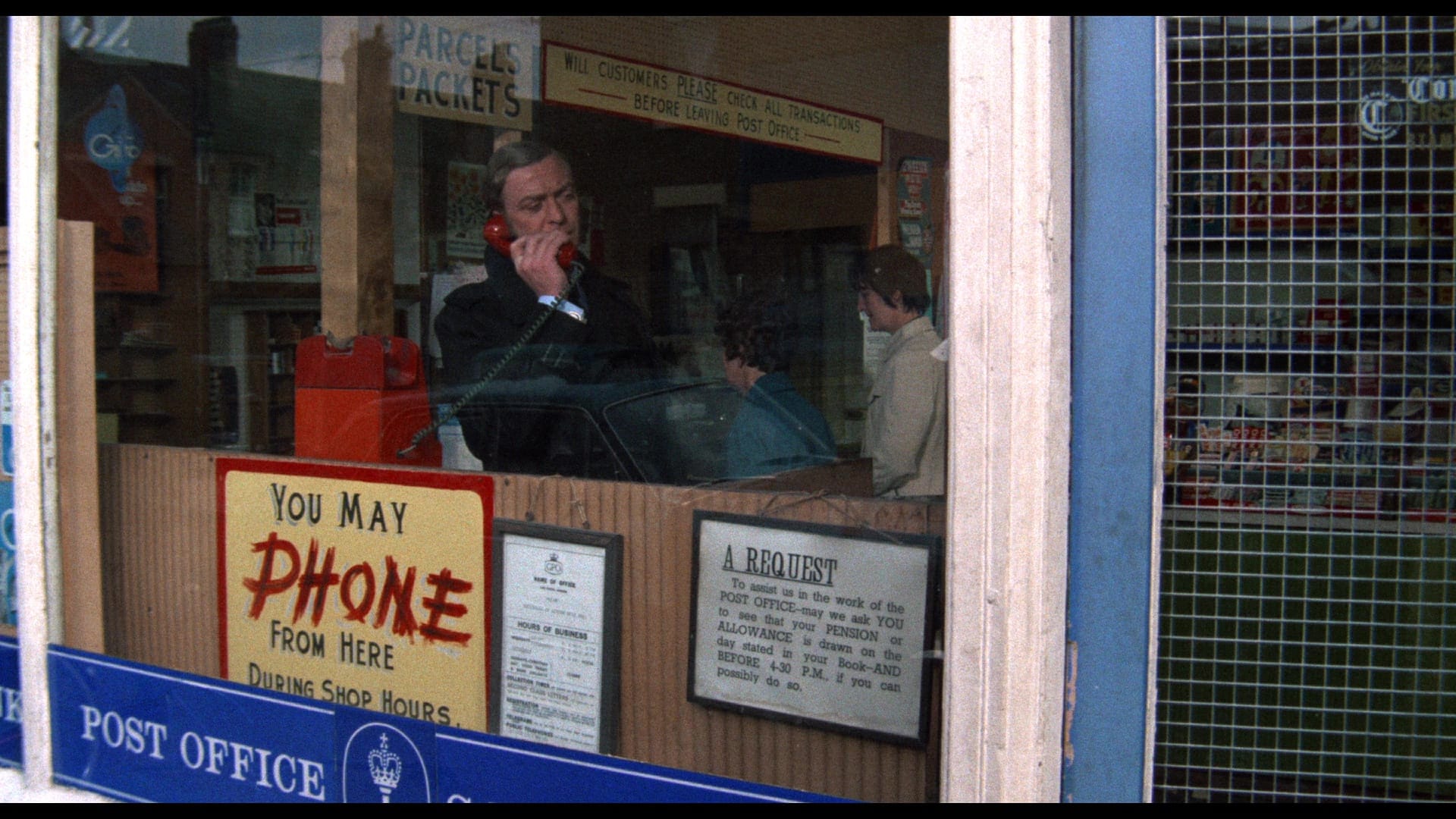
Now, to the supplements: The audio commentary recorded by Hodges, Caine and Suschitzky for Warner’s 2000 DVD release is joined by a new track with film critics Kim Newman and Barry Forshaw discussing the film and its place in the pantheon of British cinema, the first of many supplements produced for the BFI release that are ported over here.
“Don’t Trust Boys” is an interview with Petra Markham, who played Carter’s niece Doreen; “Klinger on Klinger” is a chat with Tony Klinger, son of the film’s producer Michael, about his father’s career and his collaborations with Hodges. And “The Sound of Roy Budd” lets film music expert Jonny Trunk discuss composer Budd’s career, and the impact of that weird, jazzy score.
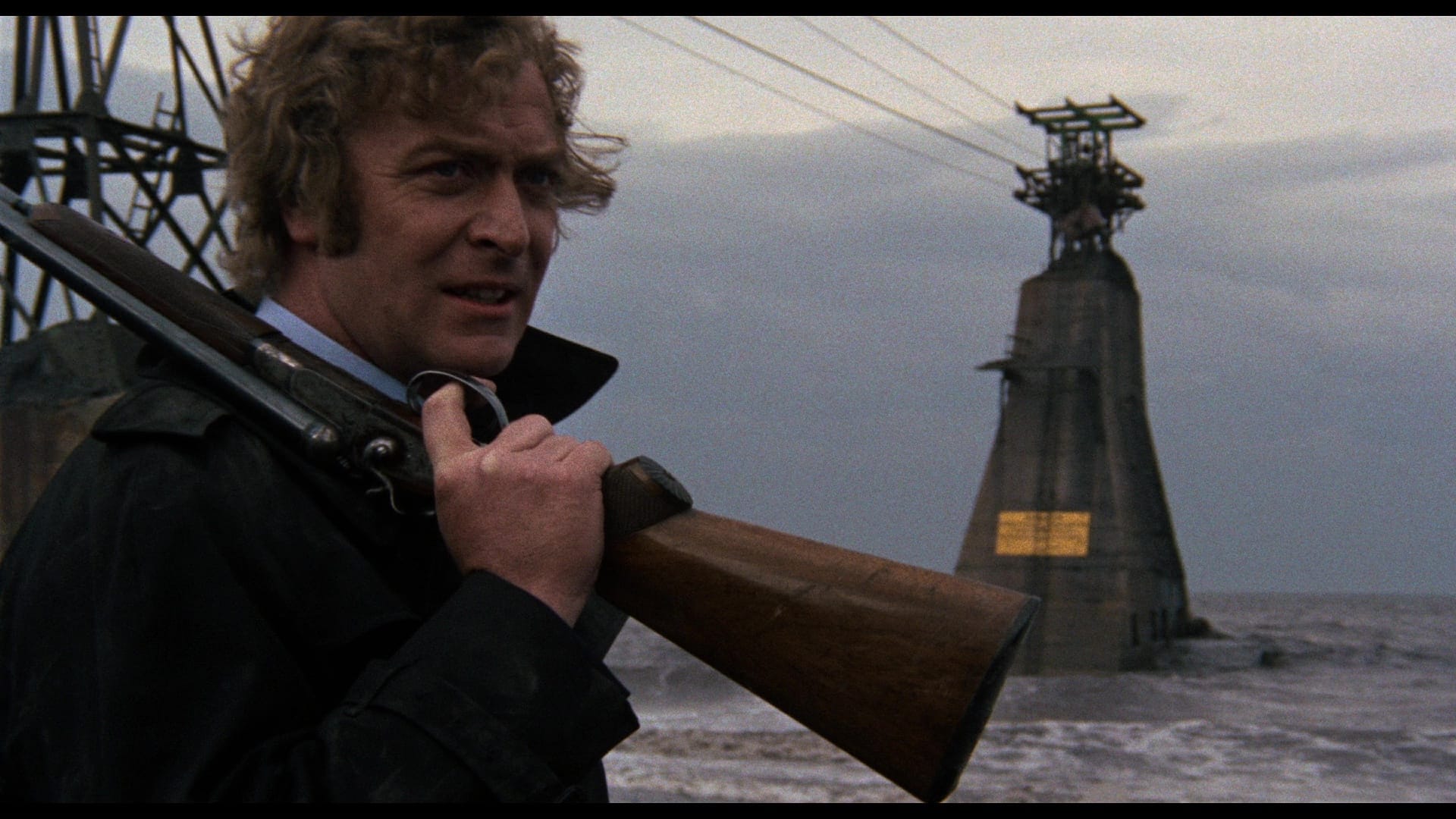
There’s also a pair of introductions from star Caine – one produced for the film’s Newcastle premiere in 1971, the other for the restoration’s theatrical run half a century later – and a collection of promotional material from the original release.
Sadly absent from the BFI disc are two pieces of local color: A snippet of a BBC location visit aired in 1971, and Philip Trevelyan’s 1967 documentary The Ship Hotel – Tyne Main, about a pub in the region. (Here’s an excerpt; you can just sink into the atmosphere, can’t you?)
But the best extra, for my money, is “Mike Hodges in Conversation,” a long-form interview with Samira Ahmed recorded at the BFI Southbank in 2022. The BFI put it on YouTube after Hodges' death that December, so you can watch it online if you’re not planning to buy the Get Carter disc. But you should buy the Get Carter disc. Buy Born in Flames, too.
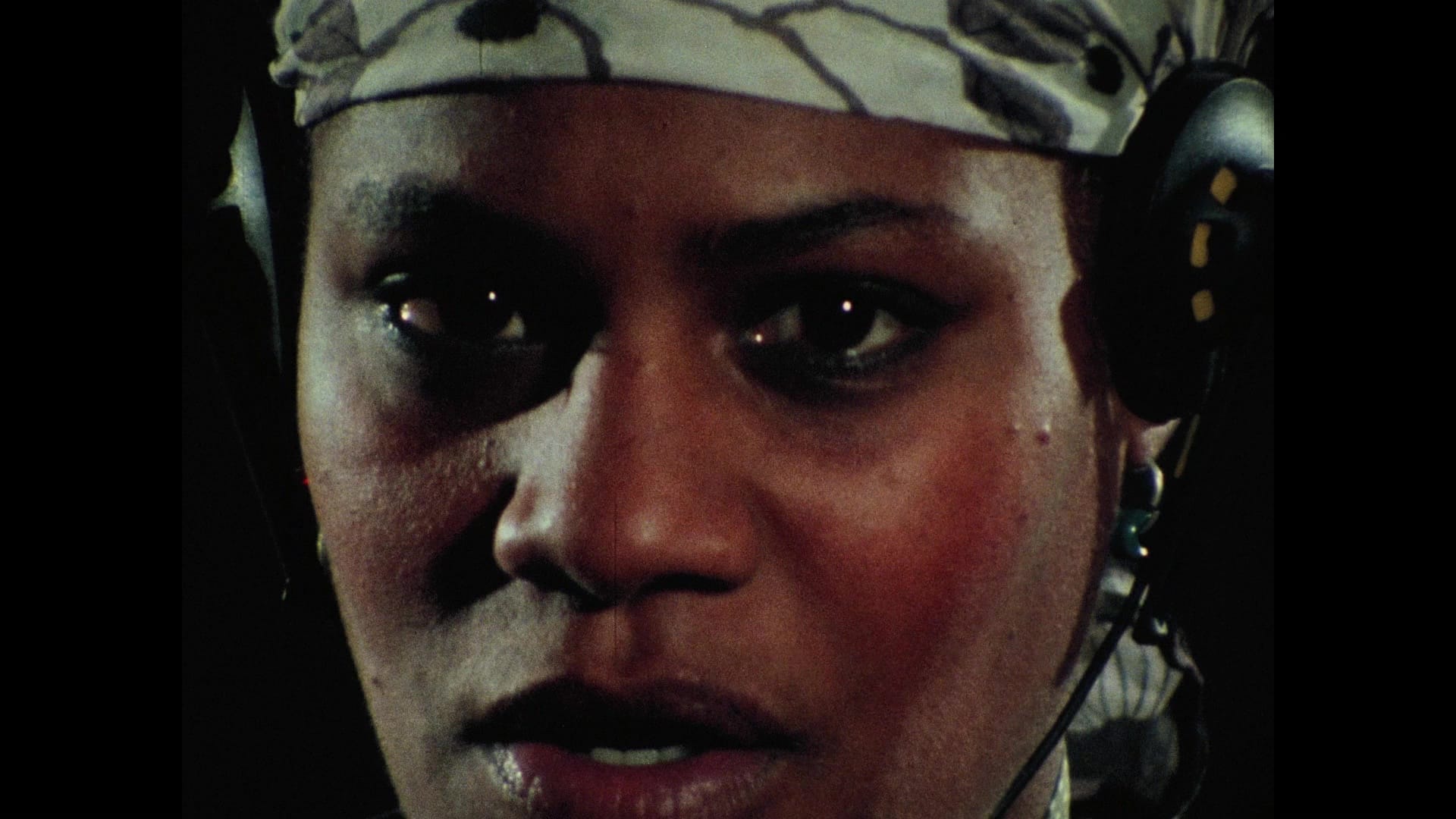
Get Carter is now available as a 4K/BD combo from the Warner Archive Collection; an individual Blu-ray is also available. Born in Flames is now available on Blu-ray in the Criterion Collection.
Up next: Still no sign of the clown in the cornfield, but James Gunn’s Superman is the movie we need right now. And also M3GAN 2.0 is there!
